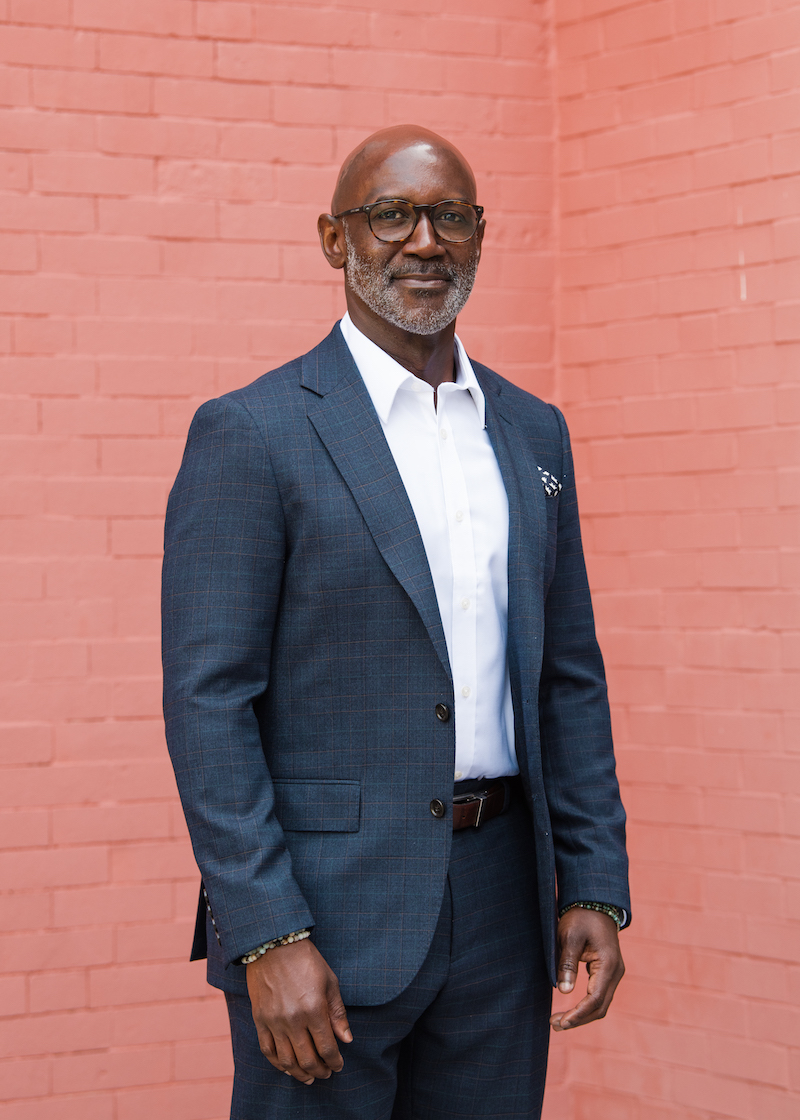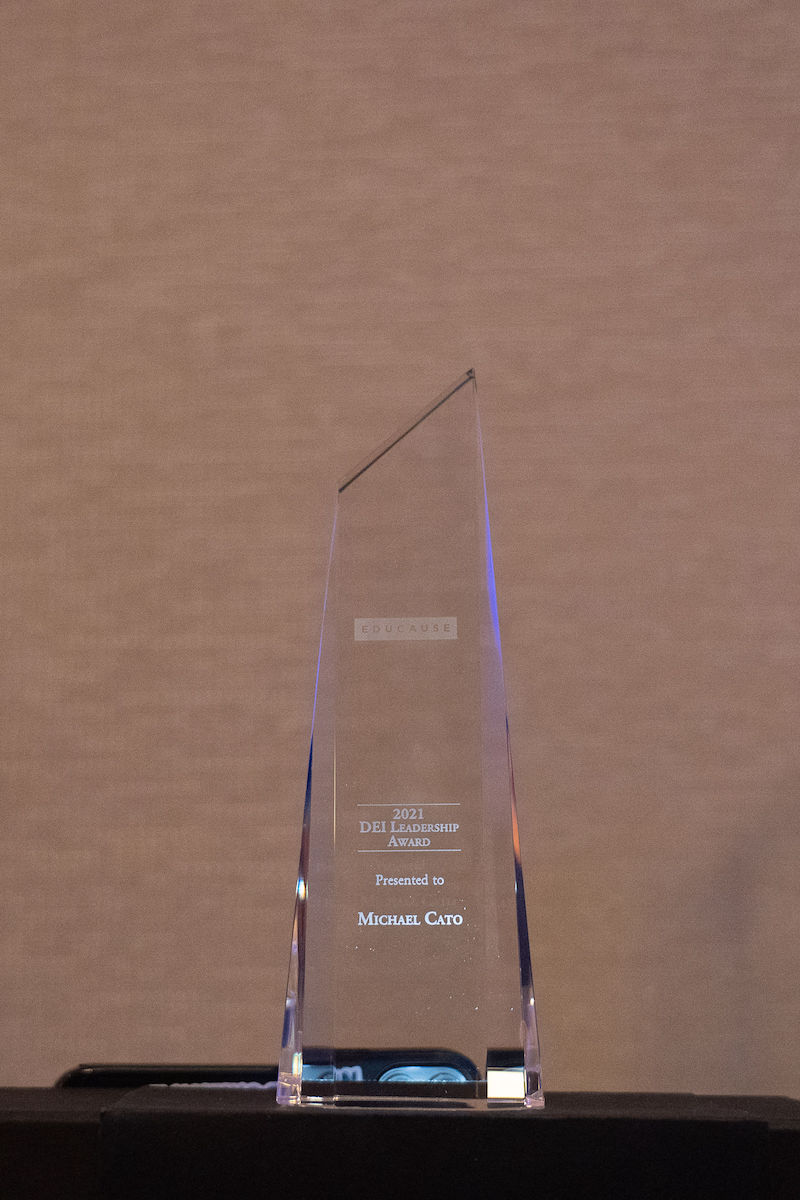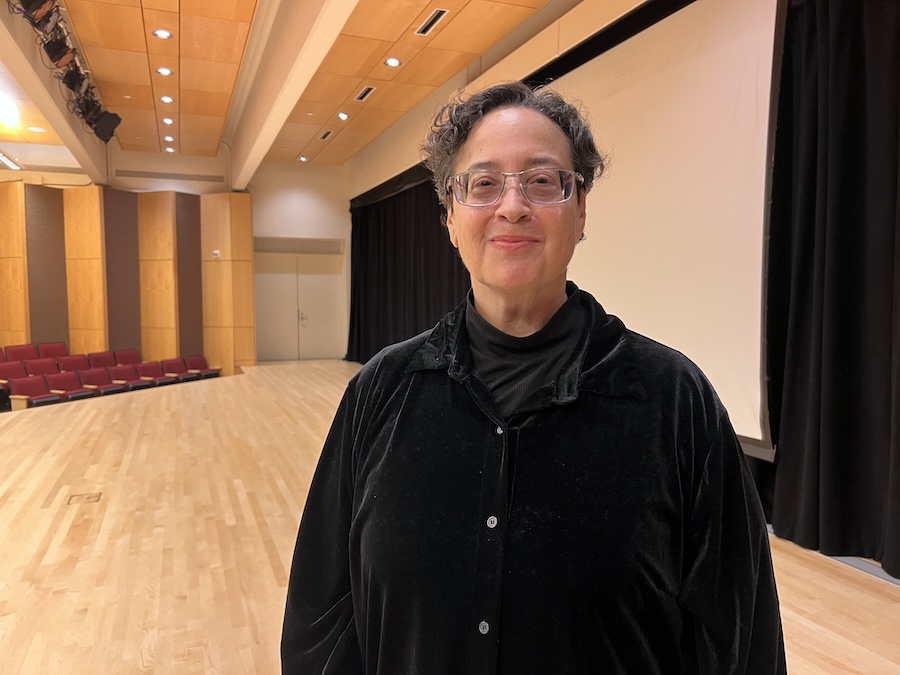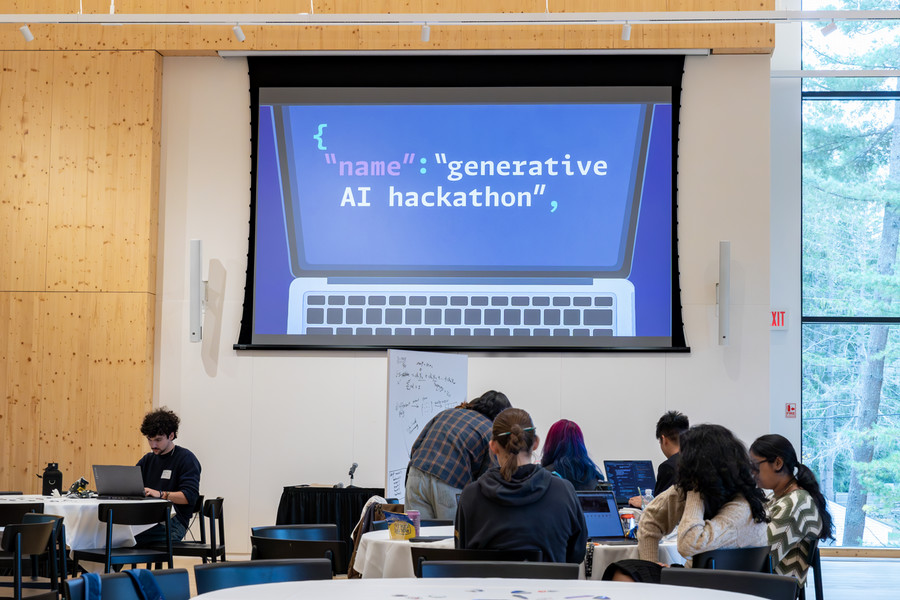Bowdoin CIO Michael Cato Honored for Advancing Diversity and Equity in IT
By Rebecca Goldfine
At its annual conference, held October 26–29 this year in Philadelphia, EDUCAUSE—a professional association serving IT in higher education—presented Cato with its 2021 EDUCAUSE DEI Leadership Award.
The DEI Leadership Award recognizes those who exhibit "wide-ranging advocacy, influence, and impact in promoting diversity, equity, inclusion, and anti-racism in the higher education community," who are "champions of organizational cultures that are collaborative, collegial, and effective," and who "mentor and build relations with young professionals and those from underrepresented communities."
Bowdoin President Clayton Rose noted that Cato has led significant advancements in Bowdoin's technology capacities—in research, teaching, the workplace, and across campus—since arriving at the College four years ago. He also praised Cato for using his leadership skills and leadership positions to create equity and opportunity at the institutions he has served, as well as across higher education.
“Information technology is a white, male-dominated world," Rose said, "and Michael has dedicated himself over many years to creating gender and racial diversity in it, and to opening avenues of opportunity for women and individuals of color.”
Before he traveled to Philadelphia to participate in EDUCAUSE's conference, Cato agreed to an interview to talk about his career, diversity in IT, and what motivates him.
Below are lightly edited excerpts from this conversation.
It sounds like you've been involved in DEI a long time, possibly since the start of your career?
"It's been part of my job, literally part of my job, since I started working in higher education. [Cato's first university position, at the University of North Carolina in Chapel Hill, was supporting its Partnership of Minority Advancement in the Biomolecular Sciences.] One of the things that attracted me to the role was that we were working on increasing representation in science careers. So my team provided the technology services for this collection of high-school-through-graduate school programs. I was excited about what we could do with technology, not just about the technology itself. For me, my work has never been about the technology, but how to use it for something larger."
"Technology is a means to the end for me. I still get really excited by technology, but what we're accomplishing with it is what drives me. At the end of the day, my focus is on people." — Michael Cato
You've always made time to provide mentorship to people of color and to women. What compels you to do this type of work on top of your other full-time duties?
I was super fortunate, because in my fourth year working at UNC I happened to be in a meeting with a woman who was the chief information officer for the entire UNC system, all seventeen campuses—a Black woman named Robyn Render. I was in total awe because I had never met a Black woman in IT at that level. I took a chance and sent her an email asking her if she would be a mentor for me. Much to my astonishment, she said yes.
In 2010, unfortunately, she passed away, and it became something of a charge for me: How can I pay it forward in a personal and direct way? Robyn is someone I owe so much of my progress to, because of my conversations with her and who she introduced me to, and also the model she served as someone who was successful and who made a commitment to the success of others.
For years I was content to do this in the background; I talked to people on my own and made connections on my own. And then my son was born. When my wife and I talked about raising a Black son in this world, I really started to think differently about this, about how to be more public about it. I wanted to be able to say to my son and show him the ways I am contributing to the world so it is a little bit better for him than it has been for me at times.
Is your son also interested in computers?
He's six! He's interested in Pokémon and stuffies. And he loves my iPad.
So how has the birth of your son shifted your approach to DEI work?
I've had opportunities to present at regional and national conferences and explicitly focus on topics of diversity, equity, and inclusion. And I teach at a number of leadership programs. In previous years, I would wait to have the opportunity to talk about DEI; now I find many ways to connect it for people in ways that are less obvious to them.
Michael Cato is working with colleagues across higher education to launch a new yearlong program to help people of color advance their careers in higher-education's IT sector. The application process will open at the end of October.
The Next Leaders Fellowship, which will be administered by Bowdoin but be mostly virtual, will support twelve participants recruited from around the country who don't have senior roles at their organization but who have demonstrated leadership skills in other areas, such as at a civic organization or church. During the program, fellows will receive professional development, mentorship from senior administrators, and access to headhunting firms, as well as financial support to attend other leadership programs.
"Often, people we mentor don't always get the opportunity to demonstrate their ability because the organization is not looking at them to promote," Cato said. "This is an attempt to build a different process, a different way of getting people in the door."

For example, two years ago, I was invited to talk about innovation with a group of CIOs. I said, 'I'll do it, but just to let you know, I'm going to talk about DEI, because in my experience this is one of the great ways to drive innovation.' I had a little dialogue with the organizer who said, 'That's great, but we try not to be political.' I said, 'This is not about politics!'
What is the connection between innovation and DEI?
What I emphasis is what I learned from Scott Page, from his book The Diversity Bonus: How Great Teams Pay off in the Knowledge Economy. I am a super big fan and a believer in the principle that more diverse teams are better at solving complex problems. Scott Page uses algorithms to show this actually happens; it's mathematically demonstrable, and he gives examples of what that looks like with people, teams, and organizations. I use that framing, that our jobs are to solve complex problems. But in IT broadly, and even in IT at higher education, we are predominantly white and male. We're super creative and innovative, but there is all this untapped potential.
And what are you doing specifically at Bowdoin to expand opportunities for people underrepresented in IT?
I'm grateful to have come to Bowdoin at a time when the institution was really primed to move on this work in novel ways. Coming here, I had never seen such an under-representation of women in IT in my twenty-year career! We started to have the conversations about why this was important to change. So now we recruit differently and post job descriptions differently. This fall, we're putting out offers for two senior-level positions, and all six of our finalists are women! One is a woman of color. These roles in particular are hard positions to fill, and to have six women finalists who are super gifted is something we're excited about. On multiple occasions we’ve received feedback that our job openings are now written in ways that resonate with broader applicants—it’s not perfect, but we’re having greater success.
And are more people of color working for you now?
Recruiting people of color has been harder. This is where being in Maine makes this more challenging. But the remote piece is opening up a lot of opportunities for us. Among our six finalists for the job I mentioned above, half told us they would not have been in the pool if we weren't open to remote work. Additionally, our newest senior director and member of the IT leadership team is Sherri Braxton, an accomplished, nationally recognized academic technology leader, who is also a Black woman based in Maryland. Sherri has a doctor of science degree in computer science and a wealth of experiences in aspects of teaching and learning we’ve never had in our team before. Being able to offer remote work gives us a different opportunity to bring in a wider array of talent and perspectives and pursue our DEI goals at scale.
Why do you think there are fewer people of color and women in IT?
There was a point earlier in the computer science industry when there was more far more gender parity than now. Some of the early computer pioneers were women, like Grace Hopper. But it’s my understanding that when personal computers came out, as a marketing ploy, companies started to play up video games, the type of video games that are marketed toward boys. If you're marketing those devices for boys, families are buying them for boys. So when girls and young women walk into computer science classes, they're filled with boys and young men who have started to pick up the belief that this is something girls don't do. Girls are told, explicitly and implicitly, you don't really belong here. With people of color, that was amplified with a disparity in resources and educational opportunities.
And then there are interesting pieces that amplify these realities. Tech companies have adopted this mindset that we need to move as fast as we can. It's all about speed and having teams that can move faster. The more homogenous you are, the faster you can move. You share shortcuts, you share mental models, you get me, I get you, you use language I use. So we have sacrificed true innovation in service of speed. New employees may gel when they come in, but they gel and just do the same thing. This is opposed to doing the harder work of figuring out how to talk to each other—how to learn about your references, your background, and the things that resonate with you. We're richer for it if when we do that work.
What are you most proud of in your career?
I'm most proud of, and grateful for, the people I've been able to work with, learn from, and help professionally. A number of them are senior leaders in their own right, and it has been so awesome to see it happen.
And I'm proud of helping people with services we've provided, especially during COVID. A group of senior IT leaders I talk to frequently have all said this was the single hardest experience of our professional lives, bar none. It took all of the skills from everything else we've ever done, combined, to lead through an experience like this. Taking a 226-year-old institution online for the first time was not something I was hired for!
And what are you most proud of in DEI?
Being able to bring these topics to the table—I didn't expect to be able to have that kind of conversation and have the space to bring my whole self, and speak from all my experiences.
And at the end of your career, what do you hope to be able to say you achieved?
If I could just reflect on knowing that there were a number of people for whom I was able to positively impact their professional lives, and in some ways, their personal lives, I'd be satisfied. Opening doors, making connections for people—if I could be known for anything, I'd be ecstatic to be known for that.



